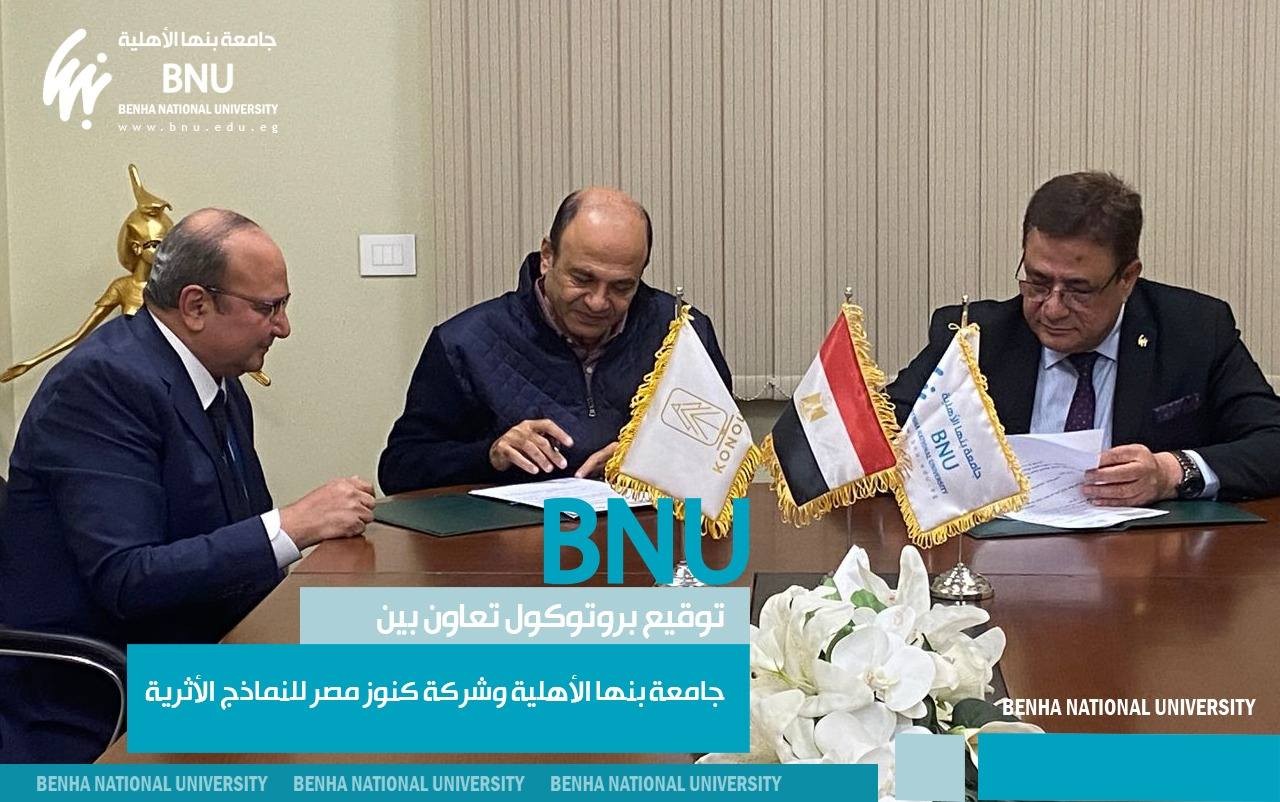Under the auspices of Prof. Tamer Samir, President of Benha National University, Prof. Mahmoud Shakel, Vice President for Employment, Innovation, and Entrepreneurship, signed a cooperation protocol with Major General Hisham Shaarawy, President of Egypt’s Treasures for Archaeological Models, at the company’s headquarters in Al-Obour City. The signing was attended by Major General Ihab Yassin, Vice Chairman of the company.
Purpose of the Cooperation
- Tamer Samirstated that the cooperation protocol aims to enhance collaboration between academic institutions and industry, developing students' skills in line with the local and international job market demands. This is achieved by linking education with practical experience and training for employment, enabling students to stay updated with the latest developments in various fields, contributing to Egypt's Vision 2030 for sustainable development.
Importance of Collaboration
- Mahmoud Shakelhighlighted the significance of collaboration between the university, industrial institutions, and civil society, emphasizing the establishment of partnerships with both public and private factories to train and prepare university students for the job market. He added that the university is committed to producing graduates capable of competing in both local and international job markets and preparing qualified personnel to contribute to the development of various sectors in alignment with Egypt's Vision 2030.
Commitment to Practical Training
- Shakel noted that this protocol reflects the university's commitment to providing exceptional practical training opportunities for its students. The university aims to guide and employ students correctly; helping them secure practical training opportunities while also emphasizing the importance of fostering innovation and entrepreneurship.
Support from Egypt’s Treasures
- Major General Hisham Shaarawywelcomed the collaboration with the university by offering field visits for students to the archaeological replicas factory in Al-Obour City during the academic year to support the educational process related to relevant curricula. He also mentioned the development of training programs for students during the summer vacation, allowing them to gain hands-on experience in the specialized production system of archaeological models and enabling continuous interaction with modern production systems.

